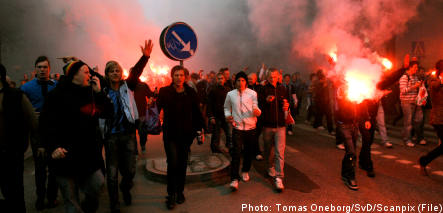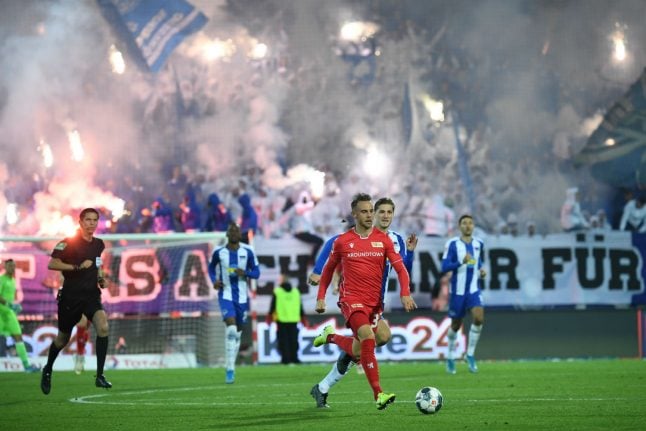“Restricting a citizen’s freedom of movement must be in proportion to the need or the result one wants to achieve. If it is possible to achieve what is sought by less invasive means, those avenues need to be explored first,” Eriksson wrote in DN.
The proposal that known hooligans report to the police prior to games was suggested by the Social Democrats during spring 2011, after a spate of hooligan related incidents had swept the Swedish sporting world.
The Riksdag subsequently voted through the proposal in June 2011, but the government were awaiting investigations into the matter before committing to new legislation regarding sport related crime.
But having hooligans report to authorities is no realistic solution in the fight against anti-hooliganism, according to Eriksson, who favours an increased use of restraining orders, combined with electronic tagging.
”There is an established legal framework to support this. The legislation is currently being used against men who beat up their women,” Eriksson wrote.
The duty to report to authorities prior to sporting events would not only be a serious infringement on citizens’ freedom to move around but would also create a huge amount of extra work for the police, argued Eriksson.
“A Djurgården supporter could be banned from both football and ice hockey. That would mean 55 games in hockey, not counting the final and the qualifiers, as well as 30 games for football apart from the cup and qualifiers. It isn’t just a lot of reporting for the individual but also for the police station where the individual must report,” Eriksson wrote.
Chairman of the Swedish Football Association, Karl-Erik Nilsson, is in favour of Eriksson’s proposal of a combined restraining order and electronic tagging.
“I think that this is a good suggestion. Björn Eriksson has been involved in this question for a long time now. A harsher restraining order combined with registration of hooligans feels like just the ticket. The Association is behind this,” he said to news agency TT.
TT/Rebecca Martin



 Please whitelist us to continue reading.
Please whitelist us to continue reading.
Member comments